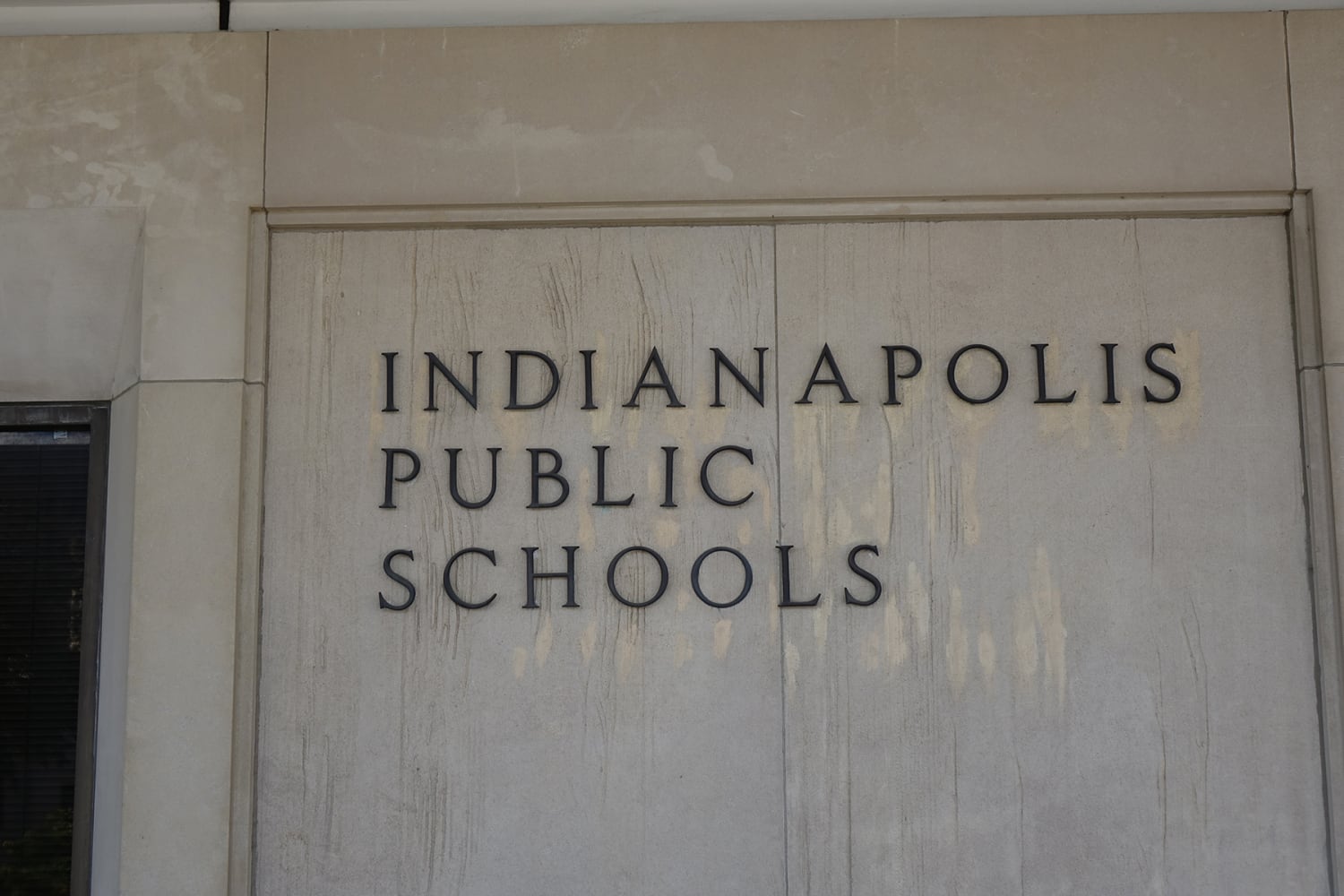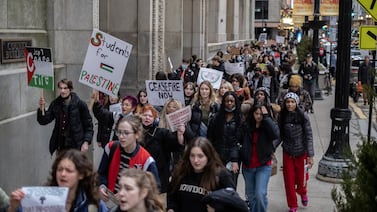Indianapolis Public Schools officials hope to ask voters to cover $810 million in operating and capital expenses through two ballot questions in May 2023 to fund its massive reorganization plan known as Rebuilding Stronger, an increase that officials estimate would raise the average tax bill by $6 per month based on the median home value.
The two ballot questions are part of a three-part effort to fund the plan, which would close seven schools, reconfigure grades throughout the district, and expand specialized academic programs such as International Baccalaureate.
One referendum for $410 million would support capital projects such as two new schools and renovations at several others.
The other referendum would generate about $50 million annually for the district’s operating budget over the course of eight years. It would fund the expansion of specialized academic programs and provide continued competitive compensation to staff.
The district also estimates saving a total of $2.5 million through 2024-25 by closing schools under Rebuilding Stronger.
The district estimates that the tax increase would mean a $6 monthly increase for a resident whose home is valued at $138,500, the median home value of homes within the IPS boundaries. Taxpayers would see an increase beginning in 2024.
The ballot referendum for operating expenses would increase the tax rate from 19 cents per $100 of assessed property value to 25 cents per $100 of assessed property value.
The capital referendum would request roughly 16 cents per $100 of assessed value to cover debt for facilities. However, district officials said that they will soon finish paying off previous debt for capital projects, a move that would lower the overall tax rate and effectively cancel out that 16-cent increase.
The two proposed ballot questions, which will be presented to the school board on Thursday, must be approved by the board before they’re added to next year’s May primary election ballot.
Rebuilding Stronger, which the school board will consider for a vote in November, is the district’s latest solution to the longstanding issues of enrollment decline, financial challenges, and a lack of access to higher-performing academic programs.
In 2018, voters agreed to increase property taxes to raise another $272 million in operating and capital expenses.That increase funded teacher pay raises and safety and facility upgrades to school buildings.
Superintendent Aleesia Johnson said the district would share money received from the operating referendum with its innovation schools, most of which are charter schools that are given more autonomy than traditional public schools.
Johnson said she hopes the IPS community will support the tax increases if they’re on the ballot.
“I just believe that folks in our city and in our community believe that our kids shouldn’t have to seek out opportunities, they should be given opportunities,” she said.
Capital referendum would fund new buildings
The $410 million capital referendum would fund a new building for Sidener Academy for High Ability Students on the current site of Francis Parker Montessori School 56. Under the plan, School 56 would merge with James Russell Lowell School 51.
The money would also fund the construction of a new 650-student elementary school at the site of Joyce Kilmer School 69, which used to operate as the innovation charter school Kindezi Academy. The operator chose not to renew its agreement with the district in 2022.
Fourteen other schools would get facility upgrades:
- Arlington Middle School
- Broad Ripple High School
- Butler Lab School 55
- Carl Wilde School 79
- Eleanor Skillen School 34
- George Julian School 57
- George Washington Carver School 87
- Harshman Middle School
- James Whitcomb Riley School 43
- Longfellow Middle School
- Northwest Middle School
- Thomas Carr Howe Middle School
- Washington Irving School 14, and
- William Penn School 49.
The decision to upgrade buildings follows a facilities assessment that found 21% of the district’s school buildings are in poor or worse overall condition. Just 31% were in good or better condition.
The funding would help improve those ratings so that students have access to “better or warm or safe learning environments both in and outside of the building,” Johnson said.
Operating referendum would expand academic programs
The operating referendum, which would last eight years and generate $50 million annually, would help expand seven academic programs in schools throughout the district: the Center for Inquiry model that uses IB programming, Montessori, Reggio, STEM, high ability, arts, and dual language.
The funding would also provide continued competitive competition for staff — although exact amounts are still unclear. The starting salary for teachers currently sits at $50,400.
“We know that we are endeavoring to execute a pretty ambitious plan, and so having our staff on board will be important in ensuring that the compensation that they are offered continues to be competitive,” Johnson said.
The plan requires staff to undergo training for certain special academic programs, such as International Baccalaureate and Montessori.
What if voters say no?
The district could still move forward with parts of the Rebuilding Stronger plan if voters don’t approve the new taxes — including school consolidations, Johnson said.
The district could also still adopt its four new enrollment zones, allowing students to attend any school within each zone — a move that could help reduce student transiency during the school year. The district might not expand special programming, however, if the tax increases don’t pass.
“If our community is not willing to invest in all kids having at least that baseline experience, then the conversation in my mind needs to shift to, ‘OK, well then what are we reducing across the board?’” Johnson said. “Because we can’t continue to have sort of the haves and have-nots structure that we experience in some ways today.”
The primary election is May 2, 2023.
Amelia Pak-Harvey covers Indianapolis and Marion County schools for Chalkbeat Indiana. Contact Amelia at apak-harvey@chalkbeat.org.








